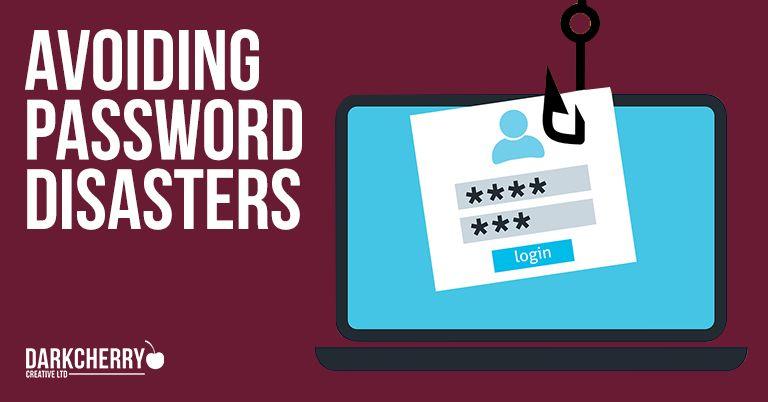Unfortunately, there are plenty of unscrupulous people on the internet, these range from a mild nuisances to villains capable of causing you a complete financial disaster.
Something that fraudsters love to get their hands on are the access credentials to your accounts, be it social media, email or your website. Because of this it’s absolutely imperative that you secure accounts from such attacks and avoid giving internet criminals an easy ride.
To illustrate the consequences of somebody getting access to your accounts, consider the following:
Social Media: The most obvious thing at risk here is your privacy but depending on the motives of the person using your details it could look like you were posting illegal or offensive material. This can be political propaganda or just general hate speech. Either way, it could be hugely embarrassing and even result in your account getting suspended. If you rely on this for your job in any respect then this could have a direct financial consequence. Lots of people these days run online businesses from the likes of Facebook or Instagram, your account being compromised could result in instant loss of income.
Email: If your email account is compromised, you’ll normally find that it gets used for spamming purposes. Spreading advertising material, viruses, or phishing messages. The first sign that this has happened will often be a response from a contact querying a message that you don’t remember sending. Again, having your account details stolen could result in your address being blocked and cause a huge inconvenience.
Websites: Attacks on websites are a bit more specialised. If you’ve got a website with any sort of web presence / traffic you can guarantee that it’ll have been subjected to numerous attacks in the past 24 hours. These normally happen by “bots” that attack huge lists of sites constantly in the hope that they’ll get access to some poorly secured sites. If compromised you could find your site held to ransom, defaced, used to host illegal materials or even used for credit card theft, if it handles these details.
If anything of the above has made you question the security of any credentials, we always advise the following:
- Create strong passwords: avoid “12345”, dates, family names or obvious words like “password”. Use a combination of uppercase, lowercase, numbers and characters with at least 8 digits.
- Use unique passwords: if you have the same password for everything, and it’s stolen, you could have lost access to numerous different platforms if they’ve all got the same password.
- Don’t rely on the “forgotten password” system: if you’ve got an easy question set as the reminder this could be an easy way for people to gain access to your details.
- Use a password manager: Web browsers like Chrome will remember passwords for you, and even suggest strong unique passwords when required. You could also use an external service like Lastpass (https://www.lastpass.com/).
- Enable 2-factor authentication: this requires entry of an additional code, often delivered by email or text message when logging into a service. This obviously takes longer when logging in, but vastly increases security. Common with online banking.
- We hate to hear of people losing access to their websites / social media etc, it can cause untold problems if you are unlucky enough for it to happen to you. Ensure everything is secure!
